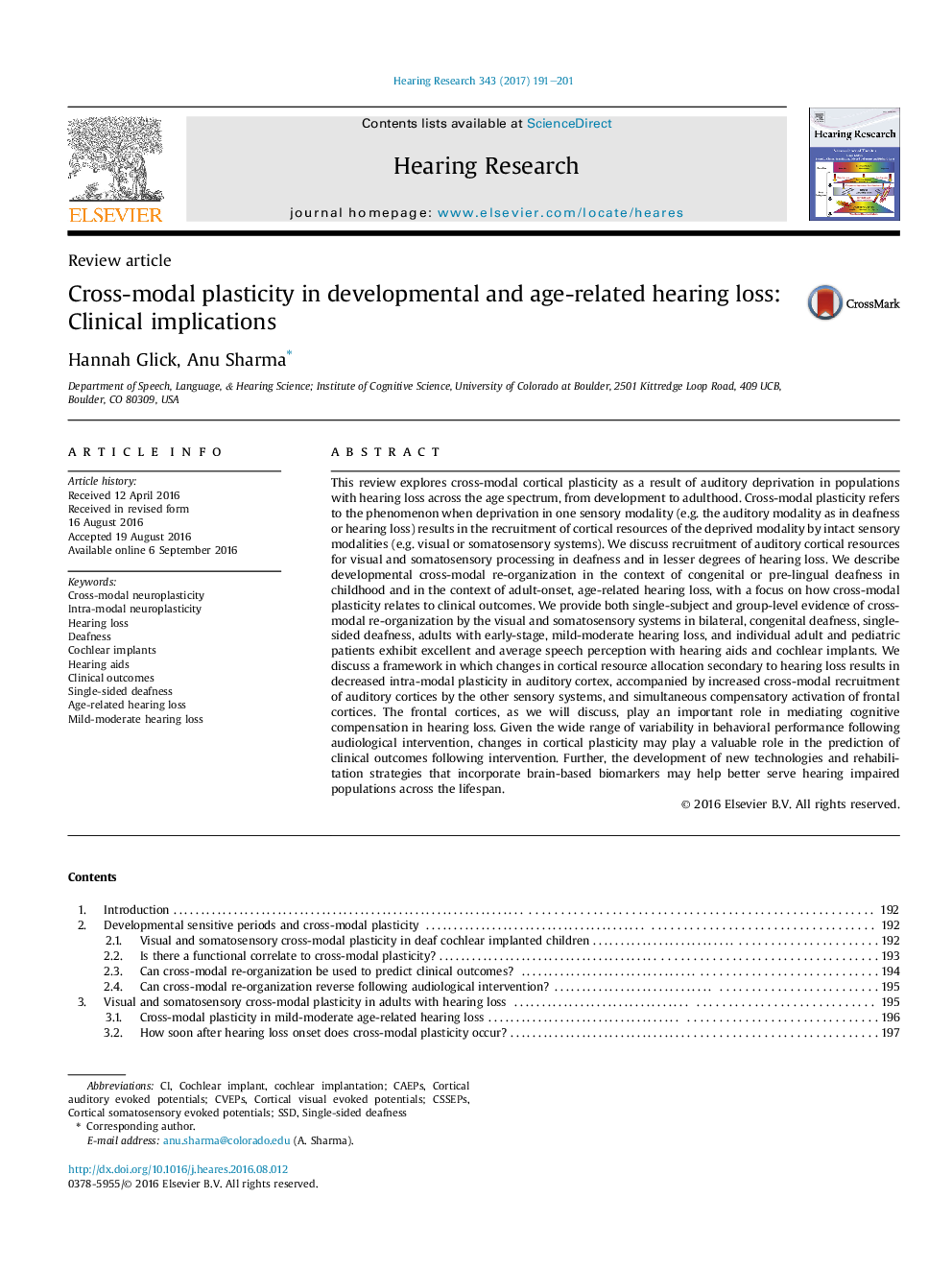| کد مقاله | کد نشریه | سال انتشار | مقاله انگلیسی | نسخه تمام متن |
|---|---|---|---|---|
| 5739535 | 1615557 | 2017 | 11 صفحه PDF | دانلود رایگان |
- We describe evidence of cross-modal plasticity by vision and somatosenation in children and adults with hearing loss.
- We describe evidence of compensatory activation of frontal cortices in hearing loss.
- We describe applications of cross-modal plasticity in clinical populations with hearing loss.
This review explores cross-modal cortical plasticity as a result of auditory deprivation in populations with hearing loss across the age spectrum, from development to adulthood. Cross-modal plasticity refers to the phenomenon when deprivation in one sensory modality (e.g. the auditory modality as in deafness or hearing loss) results in the recruitment of cortical resources of the deprived modality by intact sensory modalities (e.g. visual or somatosensory systems). We discuss recruitment of auditory cortical resources for visual and somatosensory processing in deafness and in lesser degrees of hearing loss. We describe developmental cross-modal re-organization in the context of congenital or pre-lingual deafness in childhood and in the context of adult-onset, age-related hearing loss, with a focus on how cross-modal plasticity relates to clinical outcomes. We provide both single-subject and group-level evidence of cross-modal re-organization by the visual and somatosensory systems in bilateral, congenital deafness, single-sided deafness, adults with early-stage, mild-moderate hearing loss, and individual adult and pediatric patients exhibit excellent and average speech perception with hearing aids and cochlear implants. We discuss a framework in which changes in cortical resource allocation secondary to hearing loss results in decreased intra-modal plasticity in auditory cortex, accompanied by increased cross-modal recruitment of auditory cortices by the other sensory systems, and simultaneous compensatory activation of frontal cortices. The frontal cortices, as we will discuss, play an important role in mediating cognitive compensation in hearing loss. Given the wide range of variability in behavioral performance following audiological intervention, changes in cortical plasticity may play a valuable role in the prediction of clinical outcomes following intervention. Further, the development of new technologies and rehabilitation strategies that incorporate brain-based biomarkers may help better serve hearing impaired populations across the lifespan.
Journal: Hearing Research - Volume 343, January 2017, Pages 191-201
